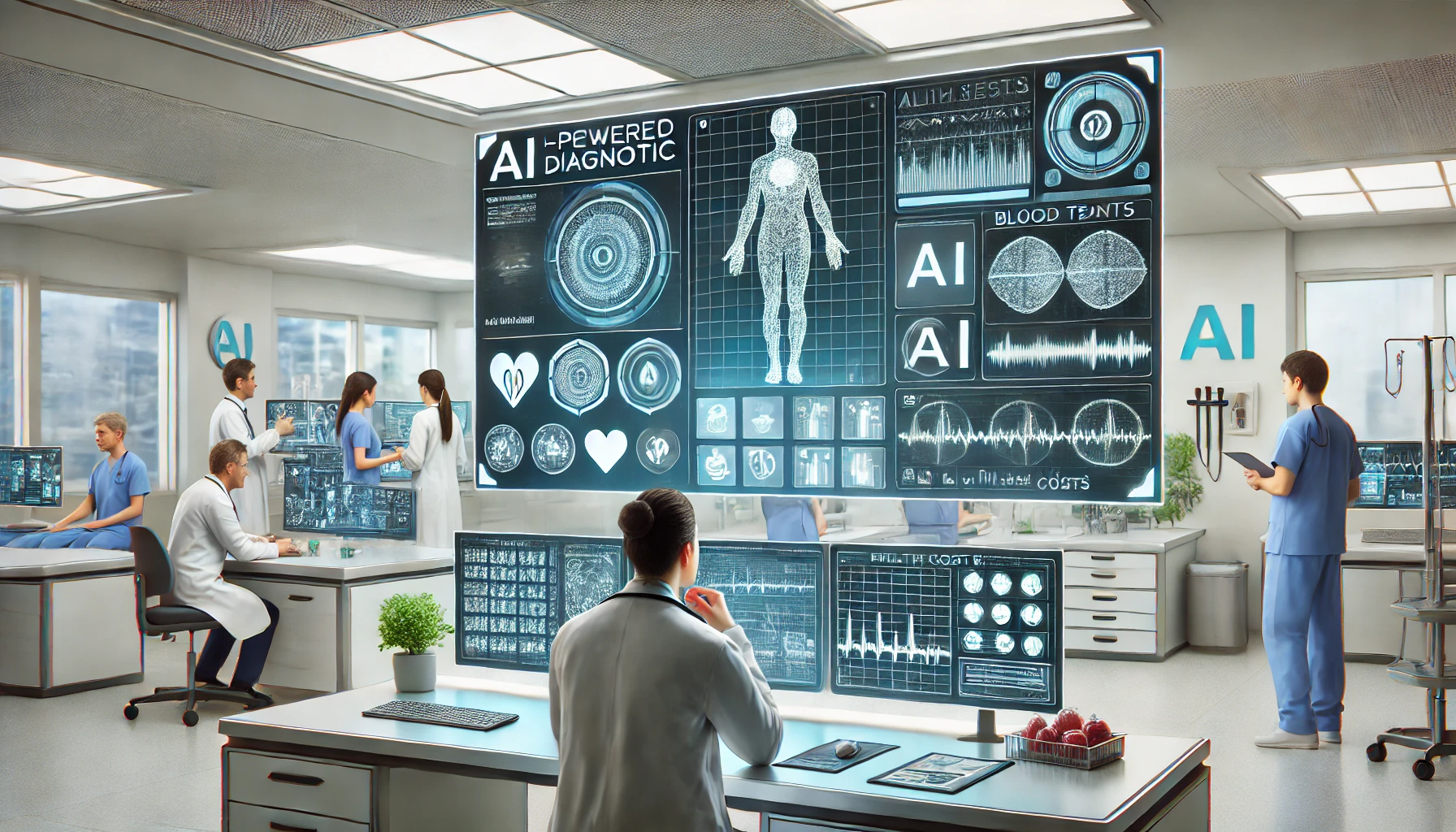The AI Doctor Will See You Now: How AI-Powered Diagnostics Are Changing Healthcare Forever

AI-Powered Diagnostics: A Game Changer in Healthcare
Remember the days when getting a diagnosis meant long waits, endless tests, and perhaps a few headaches from WebMD searches? Well, thanks to AI-powered diagnostics, those days may soon be behind us. Artificial intelligence is revolutionizing how diseases are detected, streamlining the process, and making it faster, cheaper, and, dare we say, less stressful. AI-driven tools are designed to analyze massive amounts of data, compare it to millions of medical cases, and spit out an accurate diagnosis, often faster than a human doctor could. No more guessing games – just answers.
Faster and More Accurate Diagnosis? Yes, Please
We all love efficiency, and when it comes to our health, speed is critical. AI diagnostic tools use machine learning algorithms to analyze patient data, whether it's imaging scans, blood tests, or even genetic profiles. Imagine an AI that scans your MRI and detects early signs of a tumor that a human eye might miss. Not only does this improve accuracy, but it also speeds up the detection process, leading to earlier treatments and better patient outcomes. Plus, with AI, there’s no coffee break – these tools work around the clock.
The Money-Saving Side of AI in Healthcare
Who doesn’t love saving a buck, especially in the notoriously expensive world of healthcare? AI diagnostics aren't just about speed and accuracy – they’re also about cutting costs. For healthcare providers, AI can reduce the need for costly follow-up tests by getting the diagnosis right the first time. Fewer misdiagnoses mean fewer unnecessary treatments and hospital visits, ultimately saving both healthcare providers and patients big bucks. Patients can skip the costly back-and-forth with their doctors, and insurance companies might even crack a smile (if they could).
Ethical Concerns: Who's in Charge – The AI or the Doctor?
While AI diagnostics are impressive, they come with a hefty dose of ethical concerns. Who's responsible if the AI makes a mistake? After all, we're talking about machines making decisions that could impact someone’s life. There's also the question of patient privacy. With AI collecting and analyzing sensitive health data, how do we ensure that this information is kept secure? And let's not forget the fear of job displacement – will AI replace doctors? Experts argue that AI should be seen as a tool to assist doctors, not replace them. Still, it's a conversation that healthcare providers and patients alike need to have.
What’s Next for AI Diagnostics?
AI in healthcare is only going to grow. As machine learning algorithms become more advanced, they’ll be able to predict diseases before symptoms even appear. For example, AI could analyze your genetic makeup and lifestyle choices to predict your likelihood of developing certain conditions, allowing for preventative measures. The potential for personalized medicine is enormous. But as AI becomes more integrated into healthcare, it will be critical to maintain human oversight, ensuring that these tools enhance the patient experience without overshadowing the human touch.
Final Thoughts: Are We Ready for the AI Doctor?
AI-powered diagnostics offer incredible benefits – they’re fast, accurate, and can help save money. But with any new technology, there are challenges. As AI continues to evolve, it’s essential to address the ethical concerns, ensure transparency in decision-making, and maintain trust between patients and their healthcare providers. So, are we ready to fully embrace the AI doctor, or do we need to take a step back and evaluate? The future of healthcare might just depend on how we answer that question.



